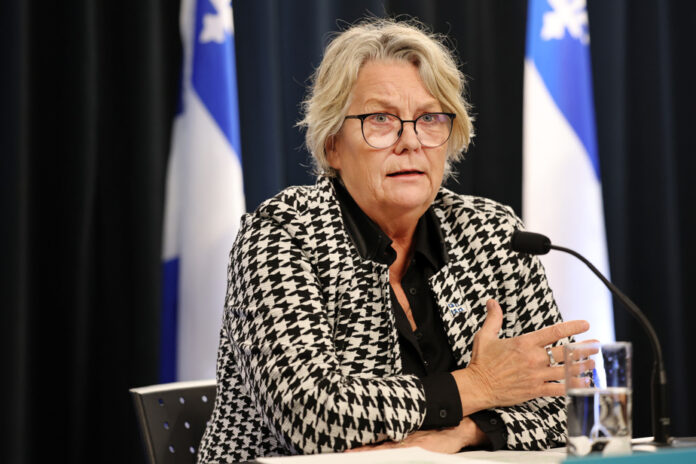(Montréal) It will now be easier and less costly for community organizations to check the criminal records of people wishing to give their time to their cause.
On Tuesday morning, the Minister responsible for Social Solidarity and Community Action, Chantal Rouleau, announced the deployment of a measure to cover the cost of criminal background check services for volunteers called upon to work with organizations whose clientele is vulnerable and at risk of abuse.
Everything is accompanied by an envelope of 6 million over five years, which will be administered by the Federation of volunteer action centers of Quebec (FCABQ), in concert with the Network of the volunteer action of Quebec. These organizations “will ensure, in particular, that the program meets the needs of community organizations whose volunteers work with targeted clienteles,” said a press release.
“We had already developed a mechanism with our 115 members a few years ago,” says the general manager of the FCABQ, Michel Alexandre Cauchon. Given the success of our measure, the government identified us to manage the program for all community organizations. It’s a very big project, but our role will be to make sure it’s a success. »
The announcement from Quebec City on Tuesday comes in response to a request from the community that dates back several years, when the Royal Canadian Mounted Police stopped carrying out free background checks.
“Before it was free, but the RCMP changed its ways in 2016 or 2017. Now, to do a background check, you have to pay between $60 and $80 per check,” says Cauchon.
Verifications that must be updated every three or five years, depending on the position occupied by the volunteer, and therefore, a recurring expense with the dozen private suppliers who offer the service.
“For some community organizations, the issue of security screening is major. They must ensure that the members of their staff, employees or volunteers, do not represent a risk for their various clienteles, who often find themselves in precarious situations. Our government wishes to help them shoulder this additional financial burden so that they continue to safely provide the services that are essential to the people and communities they serve,” said Minister Rouleau in a press release.
The Jebenevole.ca platform, which allows networking between organizations and volunteers, will also be updated, in particular with the addition of a secure registration form that will be completed by the organizations.
Concretely, it is by identifying the type of clientele and the interaction that the volunteer candidate will have with the users of the organization that the latter will be able to determine whether a criminal background check is necessary.
“We don’t check the background of all volunteers, but we want to make sure that if a volunteer is going to interact with people in vulnerable situations, that we do this background check,” said Cauchon.
However, the process does not exempt community organizations from the other due diligence steps they must undertake before recruiting a volunteer.
“There are interviews, like for a job, and taking references, lists Mr. Cauchon. Several checks must be carried out to guarantee the safety of users. »
“The assistance announced today will help ensure the safety of services provided by volunteers to people at risk of abuse. The deployment of this program will make it possible to harmonize the procedure for requesting a criminal background check for community organizations, while ensuring that only people who work with clienteles at risk of abuse or exploitation and in contexts subject to verification,” said Public Security Minister François Bonnardel.
According to data from the FCABQ and Statistics Canada, approximately 2.2 million Quebecers, or slightly less than one person in four, are volunteers.
The approximately 300 million hours of their time offered represent the equivalent of more than 145,000 full-time jobs and would have a monetary value of almost 56 billion.
Nearly 45% of the population, however, had given their time informally, according to 2018 figures, which means that many people do not identify themselves as volunteers even if they can be considered as such.
National Volunteer Week begins on Sunday, April 16. It will end on Saturday, April 22.


















